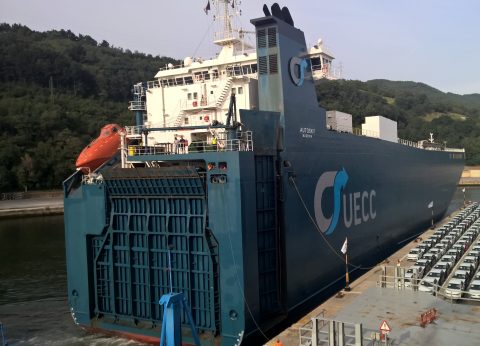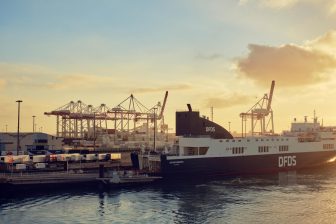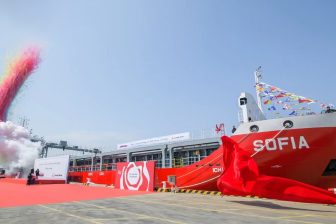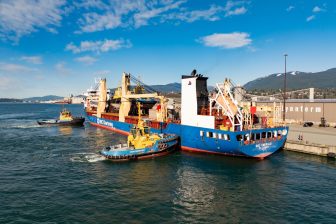
UECC slashes carbon output of old vessel in half with “fuel smoothie”
Ro/ro carrier United European Car Carriers (UECC) has reduced the carbon intensity of the 20-year old vessel Autosky by almost 60% using a biofuel from Goodfuels. “This result gives a tantalising view of how ageing assets can be transformed into environmental front-runners almost overnight”, the carrier states.
With support from its key customer BMW Group, UECC started a 12-month trial with its 6,500 dwt car carrier in March 2020. After a deep cleaning of its fuel tanks and training of the crew, the vessel swapped its conventional fuel for sustainably sourced biofuel. Provided by supplier GoodFuels, this green fuel smoothie is made from a variety of food stocks, including processed cooking oil.
Compared to heavy fuel oil, the results show “a remarkable achievement with stunning emissions reductions”, says the company’s sustainability manager Daniel Gent.
During the trial period, the Autosky used 6,000 tonnes of biofuel, reducing its overall CO2 output per tonne-kilometre from 85.62 gCO2/tkm in 2019 to 35.96 gCO2/tkm. That amounts to an almost 60% reduction in carbon intensity.
Today
“To put this into context, the IMO has set the seemingly ambitious target of a 40% reduction by 2030. This shows how forward-thinking owners like UECC can not only meet these goals but surpass them. And we can do it today, not tomorrow”, Gent says.
In total, the Autosky reduced its CO2 emissions by 20,000 tonnes, equating to a reduction of around 9 tonnes of sulphur oxide and a near-total elimination of particulate matter. As a result, UECC has now decided to continue with the use of biofuel for the vessel, which serves a short sea route from Rotterdam to Zeebrugge, Santander, Pasajes and back to Rotterdam. In addition, UECC also introduced the biofuel on another ship and is investigating the possibility of utilising bio LNG for its operations in the Baltic.
“We are committed to being at the front of shipping’s green transition and providing low emission or carbon-neutral solutions”, says Gent. “As we can see from this trial, that’s now viable on ‘legacy’ tonnage.”
You just read one of our premium articles free of charge
Register now to keep reading premium articles.




